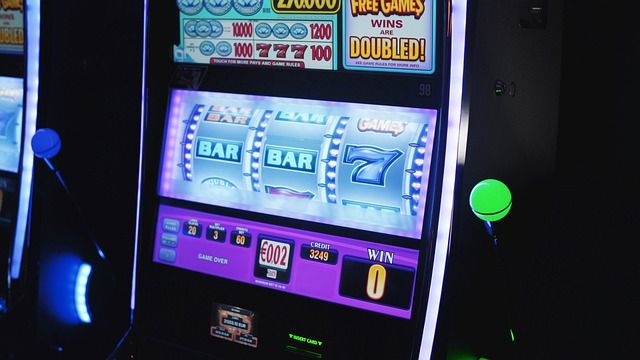Behind the Scenes: How Online Casino Algorithms Work
- Category: Pics |
- 27 Feb, 2024 |
- Views: 267 |

The inner workings of online casinos rely on complex mathematical formulas and algorithms. To the average player depositing funds and trying their luck, it may seem like magic or computerized wizardry determining whether they win or lose. However, examining the algorithms powering popular casino games provides insight into how this digital magic operates behind the curtain.
The Random Number Generators
At the heart of every online casino game, whether slots, roulette, blackjack, or bingo, is a random number generator (RNG). Random number generators are sophisticated algorithms programmed to output long strings of statistically random numbers.
Essentially, RNGs act as the virtual dealers for online platforms like King Billy Casino - digitally rolling dice, spinning roulette wheels, and dealing cards to produce results that appear fair and unpredictable. The RNGs generate new sequences of random numbers every millisecond. When a player clicks the spin button on a slot machine or places a bet at a virtual roulette table, the current RNG output helps determine where the ball lands or how the reels line up.
By relying on RNGs for game outcomes, online casinos can guarantee results remain random and impossible for players to predict. This prevents the types of cheating or outcome rigging that could occur with flawed manual operations.
House Edge Encoding
While RNG algorithms provide the randomness that makes games exciting, additional mathematical encoding ensures online casinos maintain a statistical edge over players. Known as the house edge, this represents the inbuilt advantage casinos possess that allows them to reliably generate profits over time. Games encode this house edge into their payout mechanics.
For example, in European roulette, there are 37 pockets on the wheel - the numbers 1-36 plus a single zero. However, the payout for hitting any individual number is only 35:1. Over millions and millions of spins, this imbalance favors the house. It enables the casinos to be profitable without altering or interfering with the random number generation.
Return to Player Percentages
In addition to defined house edge encoding, online slots animal algorithms also rely on return to player (RTP) percentages. The RTP tells players the long-term expected payback percentage on a particular game.
For example, if a video slot has a posted 96% RTP, this means that for every $100 wagered on that game cumulatively by all players, $96 gets paid back out in winnings over time. This leaves $4 remaining for the house - equivalent to a 4% house edge. Of course, any individual player may win big or lose big over a short session playing that slot. Still, the math dictates that overall across millions of spins, 96% returns to players.
Here are the typical RTP percentages for some popular casino games:

As the table shows, house edges are generally lower for table games like blackjack and higher for luck-based games like slots. However, slots provide more volatility and the potential for larger payouts to lucky winners.
Adjustable Attributes
Some games allow operators to adjust variables within algorithms to provide diversity despite relying on similar base RNGs and encoded house edges. For video slots, common adjustable attributes include:
• Hit Frequency - The percentage of spins that pay out winnings.
• Volatility - The average size of payouts or potential to win/lose more as a single spin.
For instance, an operator might program one slot with a high hit frequency paying small wins on 50% of spins and program another slot with bigger but less frequent payouts hitting 20% of the time. This lets casinos appeal to various player preferences without developing entirely separate games.
Ensuring Fairness
To provide assurance that the results remain fair, online casinos utilize RNG algorithms tested and certified by third-party auditors like eCOGRA. These auditors analyze the games’ mathematical outputs to verify attributes, like advertised RTP percentages, match reality over millions and millions of simulated game rounds. Only games relying on approved algorithms get offered to players.
Additionally, reputable casinos frequently update their algorithm systems or incorporate redundant RNG formulas that also undergo independent testing. Keeping certified backup algorithms allows operators to perform system maintenance without extended downtime impeding players.
The Verdict
While intricate RNG algorithms power the inherent randomness associated with online casino games, additional mathematical attributes baked into these systems ensure the house maintains its edge over time. However, game testing and certification also guarantee players receive fair odds and have a legitimate chance of winning jackpots or having big payout sessions. So while the math inherently favors casinos in aggregate, players still have opportunities to outsmart luck and beat the algorithms.
In summary, rather than computer wizards manually controlling outcomes behind the scenes, it is the sophisticated mathematics driving popular casino games that keep the experience fair and entertaining for consumers. Understanding the formulas behind the fun lifts the veil on how casinos reliably operate while continuing to dole out those highly advertised jackpots from time to time.

